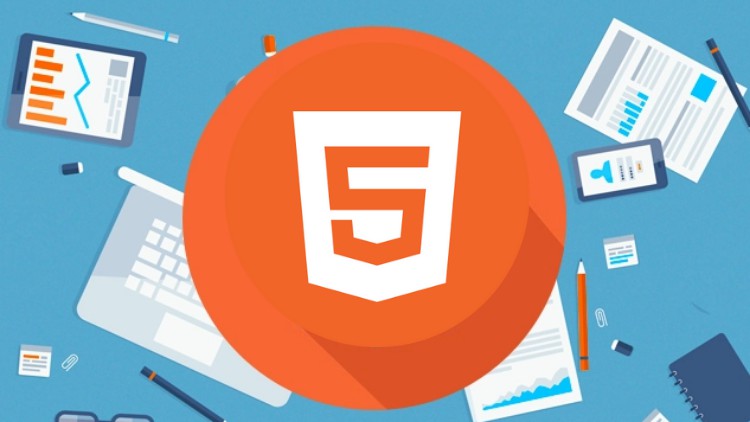HTML5 Programming – Web Development Skills – Free Udemy Courses
A Complete HTML5 Programming Course for Beginners
What you’ll learn
HTML5 Programming – Web Development Skills – Free Udemy Courses
- HTML5 Basics for beginners
- New Elements of HTML5
- Write HTML Code
- You will be able to use features like Drag and Drop, Geolocation, and Web Storage to create an immersible user experience
Requirements
-
There’s no pre-requisite at all, besides a general familiarity with the way the web works. You can and should learn CSS at the same time as you learn HTML
Description
HTML5 is awesome. Today it is widely used on the internet. Most of the latest browser supports HTML 5 standards. It provides features like animation on the webpage and many more.
HTML5 includes detailed processing models to encourage more interoperable implementations; it extends, improves, and rationalizes the markup available for documents and introduces markup and application programming interfaces (APIs) for complex web applications. For the same reasons, HTML5 is also a candidate for cross-platform mobile applications because it includes features designed with low-powered devices in mind.
Many new syntactic features are included. To natively include and handle multimedia and graphical content, the new <video>, <audio>, and <canvas> elements were added, and support for scalable vector graphics (SVG) content and MathML for mathematical formulas was also added. To enrich the semantic content of documents, new page structure elements such as <main>, <section>, <article>, <header>, <footer>, <aside>, <nav>, and <figure> are added. New attributes were introduced, some elements and attributes were removed, and others such as <a>, <cite>, and <menu> were changed, redefined, or standardized. The APIs and Document Object Model (DOM) are now fundamental parts of the HTML5 specification, and HTML5 also better defines the processing for any invalid documents.
Some technologies that were originally defined in HTML 5 itself are now defined in separate specifications:
- HTML Working Group – HTML Canvas 2D Context;
- Web Apps Working Group – Web Messaging, Web workers, Web storage, WebSocket, Server-sent events, Web Components[79] (this was not part of HTML 5, though); the Web Applications Working Group was closed in October 2015 and its deliverables transferred to the Web Platform Working Group (WPWG).
- IETF HyBi Working Group – WebSocket Protocol;
- WebRTC Working Group – WebRTC;
- Web Media Text Tracks Community Group – WebVTT.
Who this course is for:
- No programming background is assumed just a zeal to learn











Add Comment